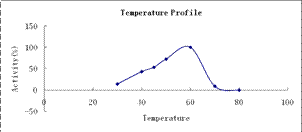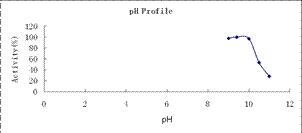Conzyme SPA-5 is a liquid form alkaline pectinase preparation. It is specially developed for bioscouring process of knitted natural cellulosic fibers such as cotton, linen, hemp and blend. It removes pectin and other impurities from cotton fibers without any degradation of the cellulose, soften and eliminate cotton seed to optimize dyeing performance.
Specification
Appearance | Liquid |
Color | Brown |
Odor | Slight fermentation odor |
Solubility | Soluble in water |
CAS NO. | 9032-75-1 |


Benefit
Conzyme SPA-5 is a perfect substitution to the traditional process of dyeing and finishing. It can replace the caustic soda, bleaching stabilizer and other harsh chemicals, and Simplify the production process, effectively shorten the processing hours. Decrease the TDS、COD、BOD index in waste water.
Improve handfeel and softness of fibers
No cellulose fibre damage and decrease the weight loss of the fibers
Water and energy saving
Environmental friendly without extensive use of harsh chemicals
Suggested solution combined with anti-pilling process
Processing condition
| Temperature | 45-60℃ |
pH | 7.0-10.0 |
Liquor ratio | 1:8-1:20 |
Dosage | Pls get the guideline from our local sales |
Time | 30-60 minutes |
Inactivation | Raising temperature above 80℃ for 10 minutes, or raising the pH above 11.0 for 10 minutes can inactivate Conzyme SPA-5 completely. |
Definition of unit
APLu/g | 1 unit of Alkaline Pectinase equals to the amount of enzyme, which hydrolyzes Polygalacturonic acid to get 1 mmol of unsaturated Polygalacturonic acid in 1 min. at 45℃ and pH9.4. |
(*) Activity of the enzymes is expressed in APLu/ml against an internal standard to ensure manufacturing lot-to-lot consistency. The enzyme activity value is not a measure for application performance. A detailed assay method is available upon request.
Storage
Should be stored in a dry place with temperature between 5-35℃.
Packaging
25kgs/drum; 30kgs/drum
Shelf life
6-9 months, subject to storage condition.
Safety
Enzyme preparations belong to protein, which may induce sensitization and cause allergic type reactions in sensitized individuals. Prolonged contact may cause minor irritation for skin, eyes or mucous membrane of nose, so any direct contiguity with human body should be avoided. If irritation or allergic response for skin or eyes develops, consult a doctor.